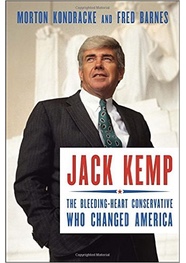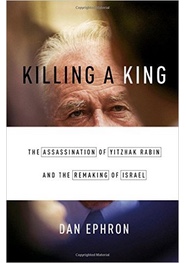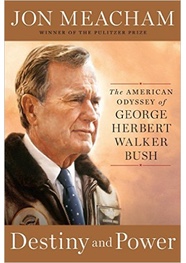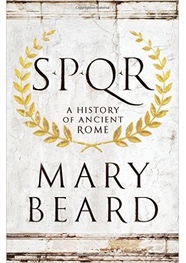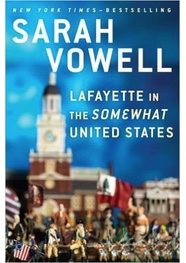NYT History Book Reviews: Who Got Noticed this Week?
Before you get into an argument with your furry history professor over something trivial this week, try this instead:
“Ever tried to win a disagreement? In Argument Wars, you will try out your persuasive abilities by arguing a real Supreme Court case. The other lawyer is your competition. Whoever uses the strongest arguments wins!”
Now, onto our reviews ....
Book: The Crime and the Silence
Summary (Via Amazon): “Part history, part memoir, The Crime and the Silence is the journalist's account of these events [in wartime Jedwabne]: both the story of the massacre told through oral histories of survivors and witnesses, and a portrait of a Polish town coming to terms with its dark past. Including the perspectives of both heroes and perpetrators, Bikont chronicles the sources of the hatred that exploded against Jews and asks what myths grow on hidden memories, what destruction they cause, and what happens to a society that refuses to accept a horrific truth.”
Author: Anna Bikont
Reviewer: Louis Begley’s first novel, Wartime Lies, was based on his childhood as a Polish Jew who escaped the Nazi death camps.
Reviewer highlights
"Beautifully written, devastating and very important book ... impeccable research."
Erik Moshe Comments:
Bikont told David Mikics of Tablet Magazine in an interview that Poland’s stance toward its Jewish past has “changed for the good in the last 10 years,” and that the new museum of Jewish History in Warsaw is a sign of a healthy new interest in the country’s Jewish heritage.
Book: Jack Kemp: The Bleeding-Heart Conservative Who Changed America
Summary (Via
Amazon):
“The late 1970s were miserable for America. It was the
post–Vietnam, post–Watergate era, a time of high unemployment,
ruinous inflation, gasoline lines, Communist advances, and
bottomed-out U.S. morale. In the 1980s, it all turned around:
‘stagflation’ ended and nearly two decades of prosperity ensued.
The Soviet Union retreated, then collapsed. America again believed in
itself. And around the world, democratic capitalism was deemed the
end of history.
“Ronald
Reagan’s policies sparked the American renaissance, but the
Gipper’s leadership is only part of the story. The economic theory
that underpinned America’s success was pioneered by a star
professional quarterback turned self-taught intellectual and
‘bleeding-heart conservative’: Jack Kemp.
“Kemp’s role
in a pivotal period in American history is at last illuminated in
this first-ever biography, which also has lessons for the politics of
today. Kemp was the congressional champion of supply-side
economics—the idea that lowering taxes would foster growth. Even
today, almost no one advocates a return to a top income tax rate of
70 percent. Kemp didn’t just challenge the Democratic
establishment. He also encouraged his fellow Republicans to be growth
(not austerity) minded, open their tent to minorities and blue-collar
workers, battle poverty and discrimination, and once again become
‘the party of Lincoln.’
“Kemp approached politics the
same way he played quarterback for the Buffalo Bills: with a refusal
to accept defeat. Yet he also was incapable of personal attack,
arguing always on the level of ideas. He regarded opponents as
adversaries, not enemies, and often cooperated with them to get
things done. Despite many ups and downs, including failed
presidential and vice-presidential bids, he represented a positive,
idealistic, compassionate Republicanism.
“Drawing on
never-published papers and more than one hundred Kemp Oral History
Project interviews, noted journalists Morton Kondracke and Fred
Barnes trace Kemp’s life, from his childhood through his pro
football career to his influential years as a congressman and cabinet
secretary.”
Authors: Morton Kondracke and Fred Barnes, who are both American political commentators and journalists.
Reviewer: Timothy Noah is the labor policy editor for Politico and author of The Great Divergence: America’s Growing Inequality Crisis and What We Can Do About It.
Reviewer highlights
“Jack Kemp, a new biography by Morton Kondracke and Fred Barnes — two right-of-center political journalists best known as co-hosts of The Beltway Boys, which ran for a decade on Fox News — gets off to a shaky start by stating that the Kemp-Roth bill helped ‘set off an economic boom that lasted into the 2000s.’
“The authors are right that it would be refreshing to see Republican candidates adopt Kemp’s happy-warrior style. But will ambitious young conservatives who read this book really take away that lesson? Kemp was a good man with some deeply felt convictions who could never vault himself to the top. A big reason, Kondracke and Barnes make clear, is that he lacked a killer instinct. Another way of putting that is to say nice guys finish last.”
Erik Moshe Comments: The two authors wrote a letter to the NYT regarding Noah's review, specifying some of their qualms with his comments about Reaganomics, tax cuts, and Kemp's legacy. (They weren't happy with Noah, so they struck down his ark and freed the animals. Now there will be a great flood of comments and appropriate parables.) For HNN articles on Jack Kemp, see here and here.
Book: Killing a King: The Assassination of Yitzhak Rabin and the Remaking of Israel
Summary (Via Amazon): “The assassination of Israeli Prime Minister Yitzhak Rabin remains the single most consequential event in Israel’s recent history, and one that fundamentally altered the trajectory for both Israel and the Palestinians. Killing a King relates the parallel stories of Rabin and his stalker, Yigal Amir, over the two years leading up to the assassination, as one of them planned political deals he hoped would lead to peace, and the other plotted murder.
“Dan Ephron, who reported from the Middle East for much of the past two decades, covered both the rally where Rabin was killed and the subsequent murder trial. He describes how Rabin, a former general who led the army in the Six-Day War of 1967, embraced his nemesis, Palestine Liberation Organization leader Yasser Arafat, and set about trying to resolve the twentieth century’s most vexing conflict. He recounts in agonizing detail how extremists on both sides undermined the peace process with ghastly violence. And he reconstructs the relentless scheming of Amir, a twenty-five-year-old law student and Jewish extremist who believed that Rabin’s peace effort amounted to a betrayal of Israel and the Jewish people. As Amir stalked Rabin over many months, the agency charged with safeguarding the Israeli leader missed key clues, overlooked intelligence reports, and then failed to protect him at the critical moment, exactly twenty years ago. It was the biggest security blunder in the agency’s history.”
Author: Dan Ephron, a former Jerusalem bureau chief for Newsweek and the Daily Beast.
Reviewer: Jennifer Senior
Reviewer highlights
“Exceptional…
“Killing a King is not, at its core, a polemic about the echoing political consequences of Mr. Rabin’s murder, though its subtitle might imply as much. Rather, it’s an electrifying political narrative twinned with an old-fashioned crime story — of the sort that ought to be taught in journalism schools for its restraint, pacing and expert creation of suspense.
“The real strength of this book, though, lurks in its hundreds of sparkling details, for which Mr. Ephron has a jewelry appraiser’s eye.”
Erik Moshe Comments: Rabin once said, "We sail onto a war which has no casualties, no wounded, no blood nor suffering. It is the only war which is a pleasure to participate in — the war for peace." Alternatively, War of the Worlds was a pleasure to read, and humanity won at the end.
Book: Destiny and Power: The American Odyssey of George Herbert Walker Bush
Summary (Via Amazon): “With access not only to the Bush diaries but, through extensive interviews, to the former president himself, Meacham presents Bush’s candid assessments of many of the critical figures of the age, ranging from Richard Nixon to Nancy Reagan; Mao to Mikhail Gorbachev; Dick Cheney to Donald Rumsfeld; Henry Kissinger to Bill Clinton. Here is high politics as it really is but as we rarely see it.”
Author: Jon Meacham is a presidential historian, an executive editor at Random House, a former editor of Newsweek and the author of American Lion, an account of Andrew Jackson’s presidency that won the Pulitzer Prize in 2009. He retweeted an HNN post about his book being reviewed.
Reviewer: Jim Kelly, the managing editor of Time magazine from 2001 to 2006, is a contributing editor at Vanity Fair.
Reviewer highlights
"A deeply empathetic, often moving book..."
“Destiny and Power reflects the qualities of both subject and biographer: judicious, balanced, deliberative, with a deep appreciation of history and the personalities who shape it. If Meacham is sometimes polite to a fault, Destiny and Power does not suffer for it. His kinder, gentler approach succeeds in making George H. W. Bush a more sympathetic — and more complex — figure than if the former president had written his own doorstopper after all."
Erik Moshe Comments: "When I need a little advice about Saddam Hussein, I turn to country music," said George Bush Sr., in 1991. When I need a little vice about Saddam Hussein, I turn to Rumsfeld.
Book: SPQR: A History of Ancient Rome
Summary (Via Amazon): "Ancient Rome was an imposing city even by modern standards, a sprawling imperial metropolis of more than a million inhabitants, a 'mixture of luxury and filth, liberty and exploitation, civic pride and murderous civil war' that served as the seat of power for an empire that spanned from Spain to Syria. Yet how did all this emerge from what was once an insignificant village in central Italy? In S.P.Q.R., world-renowned classicist Mary Beard narrates the unprecedented rise of a civilization that even two thousand years later still shapes many of our most fundamental assumptions about power, citizenship, responsibility, political violence, empire, luxury, and beauty.
"From the foundational myth of Romulus and Remus to 212 ce―nearly a thousand years later―when the emperor Caracalla gave Roman citizenship to every free inhabitant of the empire, S.P.Q.R. (the abbreviation of ‘The Senate and People of Rome') examines not just how we think of ancient Rome but challenges the comfortable historical perspectives that have existed for centuries by exploring how the Romans thought of themselves: how they challenged the idea of imperial rule, how they responded to terrorism and revolution, and how they invented a new idea of citizenship and nation."
Author: Mary Beard is a professor of classics at Cambridge University.
Reviewer: Dwight Garner.
Timothy Noah, who reviewed the book about Jack Kemp, wrote an article for Slate praising Garner, entitled "I Like Dwight."
Reviewer highlights
“A sprawling but humane volume…
“[Beard] is a debunker and a complicator. Do not come to this book for grand vistas, magisterial certainty or pinpoint war strategy.
“It’s a weakness of SPQR that Ms. Beard seems more eager to tell us what historians don’t know than what they do. She is so subtle, hedging every bet, that the ceiling fans sometimes cease to circulate the air.
“You push past this book’s occasional unventilated corner, however, because Ms. Beard is competent and charming company. In SPQR she pulls off the difficult feat of deliberating at length on the largest intellectual and moral issues her subject presents (liberty, beauty, citizenship, power) while maintaining an intimate tone.
“Ms. Beard’s prose is never mandarin, yet she treats her readers like peers.”
Erik Moshe Comments: If anyone recalls, Mary Beard was featured, along with Lucy Worsley, in my debut feature article on HNN: "Which Historians Have the Most Followers on Twitter?" At first, they were not on the list because I overlooked them. I made sure to add them in as soon as they were brought to my attention. Teehee! Also, I was going to make a joke about Dwight Eisenhower's beard, tying together author and reviewer in an attempt at a witty quip, but it appears the former Prez seldom had one long enough for someone to snap a photograph.
Book: Lafayette in the Somewhat United States
Summary (Via
Amazon):
"Chronicling General Lafayette’s years in Washington’s army,
Vowell reflects on the ideals of the American Revolution versus the
reality of the Revolutionary War. Riding shotgun with Lafayette,
Vowell swerves from the high-minded debates of Independence Hall to
the frozen wasteland of Valley Forge, from bloody battlefields to the
Palace of Versailles, bumping into John Adams, Thomas Jefferson, Lord
Cornwallis, Benjamin Franklin, Marie Antoinette and various kings,
Quakers and redcoats along the way.
"Drawn to the
patriots’ war out of a lust for glory, Enlightenment ideas and the
traditional French hatred for the British, young Lafayette crossed
the Atlantic expecting to join forces with an undivided people,
encountering instead fault lines between the Continental Congress and
the Continental Army, rebel and loyalist inhabitants, and a
conspiracy to fire George Washington, the one man holding together
the rickety, seemingly doomed patriot cause.
"While
Vowell’s yarn is full of the bickering and infighting that marks
the American past—and present—her telling of the Revolution is
just as much a story of friendship: between Washington and Lafayette,
between the Americans and their French allies and, most of all
between Lafayette and the American people. Coinciding with one of the
most contentious presidential elections in American history, Vowell
lingers over the elderly Lafayette’s sentimental return tour of
America in 1824, when three fourths of the population of New York
City turned out to welcome him ashore. As a Frenchman and the last
surviving general of the Continental Army, Lafayette belonged to
neither North nor South, to no political party or faction. He was a
walking, talking reminder of the sacrifices and bravery of the
revolutionary generation and what the founders hoped this country
could be. His return was not just a reunion with his beloved
Americans it was a reunion for Americans with their own astonishing,
singular past."
Author: Sarah Vowell
Reviewer: Charles P. Pierce, who in 2010 wrote the book Idiot America: How Stupidity Became a Virtue in the Land of the Free which is reminiscent of a book that predated it, Just How Stupid Are We?: Facing the Truth About the American Voter by HNN's Editor, Rick Shenkman.
Reviewer highlights
"Vowell wanders through the history of the American Revolution and its immediate aftermath, using Lafayette’s involvement in the war as a map, and bringing us all along in her perambulations — with occasional side trips to such modern phenomena as Colonial Williamsburg, the many protesters who have flocked to Lafayette Square across from the White House and Vowell’s curious fascination with, and fascinated curiosity about, Quaker historians. She encounters one of the breed while visiting the Brandywine Valley, where Lafayette once served with distinction even after having been wounded, and Vowell uses the episode to give a shrewd précis of what she’s about generally.
"Her prose sparkles. It is not glib..."
Erik Moshe Comments: For HNN articles on Lafayette, see here and here. I also recommend checking out this article: “10 Things You May Not Know About the Marquis de Lafayette.”
For Fun: Myths of the American Revolution

